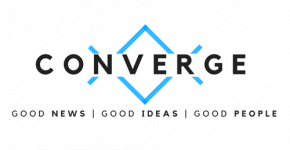In today’s world, the role of home nursing providers for people with disabilities has never been more critical. As the population ages and health issues continue to rise, the need for skilled and dedicated care providers for people with disabilities grows exponentially. Providing high-quality home nursing care for people with disabilities, however, is not an easy task. It requires a deep understanding of the latest medical practices, empathy, and communication skills, among others. The good news is that innovative training programs are now available to empower the care provider workforce.
The Importance of Innovative Training Programs for Care Providers
Traditionally, care provider training has been a one-size-fits-all approach, with limited opportunities for customization or individualization. This approach, however, is no longer adequate, as the needs of patients are becoming more complex and diverse.
Innovative training programs are essential because they allow care providers to learn at their own pace and in a manner that suits their unique needs. By leveraging technology and other creative tools, these programs provide a more engaging and effective learning experience, ultimately leading to improved patient outcomes.

Gamification in Care Provider Training
Gamification is a popular technique used in training programs to increase learner engagement and motivation. The idea is to incorporate game-like elements, such as points, badges, and leaderboards, into the training experience.
Gamification is highly effective in training care providers. It offers a fun and interactive learning experience for complex medical concepts. For example, gamified programs simulate medical emergencies for practising critical decision-making skills in a safe environment.
Virtual Reality (VR) Training Programs
Virtual reality (VR) technology has become increasingly popular in care provider training programs. VR training programs allow care providers to practice various medical procedures, such as surgeries, in a virtual environment.
This approach offers benefits like safe skill practice for care providers. VR training programs simulate rare medical conditions, enhancing their understanding of specific situations.
Social Learning Platforms
Social learning platforms, such as discussion forums and online communities, are becoming more prevalent in care provider training programs. These platforms provide a way for care providers to share knowledge and best practices with each other, ultimately leading to improved patient care. They also help to build a sense of community among care providers, which can be particularly beneficial for those working in remote or isolated settings.

Mobile Learning
Mobile learning is another innovative training approach that is becoming increasingly popular in the care provider industry. By leveraging mobile devices, care providers can access training materials and resources from anywhere, at any time.
This way of learning is particularly useful for busy care providers who may not have time for traditional classroom-based training. Mobile learning programs can be designed to be bite-sized and easily digestible, allowing care providers to learn on the go.
Personalized Learning Paths
Personalized learning paths are another innovative approach to care provider training. They allow care providers to customize their training experience based on their unique needs and skill levels. For instance, a care provider who needs to improve their communication skills can focus on modules that specifically address that area. Personalized learning paths provide a more efficient and effective way for care providers to learn which ultimately leads to better patient outcomes.
Professional Care Providers
It is crucial to have trained and professional care providers to ensure that individuals receive the highest level of service possible. If you live in Australia, a registered Melbourne care provider will offer home care packages and NDIS services.
They will provide quality care services to individuals in need, including those with disabilities or elderly individuals who require in-home care. In addition to their trained professionals, their staff will be up-to-date with the latest medical practices and techniques.
In Conclusion
Innovative training programs have already begun to revolutionize the care provider industry. As technology continues to evolve, we can expect to see even more creative and effective training programs in the future. These programs will continue to empower care providers, allowing them to build the necessary skills to provide the best possible care for patients. The future of care provider training is exciting, and we can expect to see significant improvements in patient outcomes as a result.





